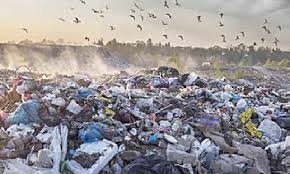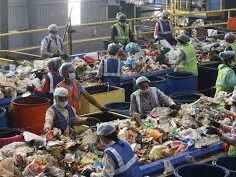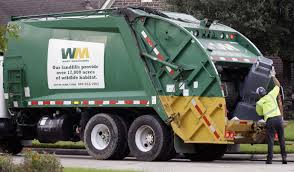Waste management refers to the systematic collection, transportation, processing, recycling, and disposal of waste materials, with the aim of minimizing its negative environmental and health impacts while maximizing resource recovery and sustainability.
This process involves various methods and technologies to handle different types of waste, including solid waste, liquid waste, and hazardous waste, in an efficient and environmentally responsible manner
Waste management is a crucial aspect of modern living that often goes unnoticed but plays a significant role in our daily lives. It involves the organized handling of waste materials to protect our environment, human health, and valuable resources.
In this article, we’ll explore the importance of waste management and how it works to create a cleaner and greener future for all of us.
The Importance of Waste Management
Waste management may not be a topic that sparks excitement, but it’s an essential aspect of our lives. It involves taking care of the waste we create every day. In this article, we’ll explore why waste management is so important and how it affects our world in simple terms that everyone can understand.
1. Protecting Our Environment: Imagine if everyone threw their garbage wherever they pleased. Our surroundings would be messy, and nature would suffer. Proper waste management keeps our environment clean and healthy. It stops pollution and helps us keep the air we breathe, the water we drink, and the land we live on free from harmful substances.
2. Keeping Us Healthy: Have you ever heard the saying, “Cleanliness is next to godliness”? It’s true! When waste piles up and isn’t managed properly, it can lead to diseases. Nasty pests like rats and mosquitoes love garbage, and they can spread illnesses. Proper waste management protects our health by keeping these threats at bay.
3. Saving Valuable Resources: Waste isn’t just trash; it’s a mix of materials, some of which can be used again. When we recycle things like paper, glass, and plastic, we save trees, energy, and natural resources. This means less cutting down of forests and fewer factories belching out pollution.
4. Reducing Our Impact on the Planet: Our Earth has limited resources. When we throw things away without thinking, we use up those resources faster than they can be replaced. Proper waste management helps us use less and take better care of our planet.
Read Also: Styrofoam Recycling Process: Complete Beginners Guide
How Waste Management Works

Waste management is like a team effort involving different steps:
1. Collection: Garbage trucks come around to pick up the waste from our homes and businesses.
2. Sorting and Recycling: After collection, some items like cans and bottles are separated and sent for recycling, which means turning them into new products.
3. Treating Special Waste: Some waste, like chemicals or sewage, needs special treatment to make it safe for the environment.
4. Disposal: The waste that can’t be recycled or treated is carefully buried in landfills or burned in incinerators designed to minimize harm.
5. Transportation: Collected waste is then transported to facilities where it will undergo various processes like sorting, recycling, or disposal.
6. Community Involvement: Waste management is a collective effort involving individuals, communities, and governments. Everyone can contribute to effective waste management by reducing waste generation, recycling, and following local disposal guidelines.
Waste management is not only about getting rid of trash but also about protecting our environment, health, and valuable resources. By understanding its importance and actively participating in waste reduction and recycling efforts, we can all contribute to a cleaner, greener future for our planet.
The Advantages of Waste Management
Waste management may not sound glamorous, but it brings numerous benefits that affect our daily lives positively. In this article, we’ll explore the straightforward and essential advantages of effective waste management, highlighting why it’s crucial for our communities and the environment.
1. A Cleaner and Healthier Environment: Proper waste management keeps our surroundings clean and prevents pollution. It ensures our streets, parks, and public spaces stay neat and appealing. A cleaner environment means improved air quality and cleaner water sources, which directly impact our well-being.
2. Disease Prevention: Effective waste management helps keep pests like rats and insects at bay. These pests can carry diseases and pose health risks. By reducing waste and ensuring proper disposal, we decrease the likelihood of diseases spreading in our communities.
3. Conserving Resources: Waste often contains materials that can be recycled, such as paper, plastic, and metals. Recycling these materials conserves valuable natural resources. Less waste means reduced demand for raw materials, which can help protect our planet’s finite resources.
4. Energy Savings: Recycling and waste-to-energy processes can significantly reduce energy consumption. Creating products from recycled materials typically requires less energy than making them from scratch. Waste-to-energy facilities convert waste into electricity, contributing to sustainable energy production.
5. Economic Benefits: Proper waste management creates jobs in waste collection, recycling, and waste processing industries. By reducing waste disposal costs and generating income from recycling, communities can save money and invest in other essential services.
6. Environmental Protection: Effective waste management prevents harmful chemicals and pollutants from seeping into the soil and water, safeguarding ecosystems and wildlife. It mitigates greenhouse gas emissions, contributing to the fight against climate change.
Read Also: How to Make Money from Styrofoam Recycling
The Disadvantages of Waste Management

While waste management brings many benefits, it’s essential to be aware of its drawbacks and challenges. Let’s explore the straightforward disadvantages of waste management to gain a comprehensive view of this critical process.
1. Environmental Impact: Landfills and incinerators used for waste disposal can have negative environmental effects. Landfills take up space, and incineration can release pollutants into the air. Some waste management practices can harm ecosystems and natural habitats.
2. Costs and Budget Constraints: Setting up and maintaining waste management systems can be expensive for local governments and communities. Stricter environmental regulations can lead to increased costs for waste treatment and disposal.
3. Limited Recycling Rates: Not all materials are easily recyclable, and recycling rates vary by region. Some items, like certain plastics, are challenging to recycle effectively. Low recycling rates mean more waste ends up in landfills or incinerators.
4. Health Concerns for Workers: Waste management workers may face health risks due to exposure to hazardous materials, heavy lifting, and challenging working conditions. Proper safety measures and training are essential to protect these workers.
5. Resource and Energy Use: Recycling and waste treatment processes require energy and resources. Collecting, sorting, and processing materials consume energy, which can contribute to carbon emissions. Finding sustainable ways to minimize these impacts is an ongoing challenge.
6. Waste Exportation: Some regions export their waste to other areas or countries, leading to environmental and ethical concerns. This can burden communities that receive waste from elsewhere. Reducing waste exportation and finding local solutions is a complex issue.
While waste management offers crucial benefits, such as environmental protection and health improvements, it also presents several challenges.
These disadvantages highlight the need for ongoing innovation and responsible waste management practices to minimize environmental and social impacts. Balancing the pros and cons of waste management is an ongoing effort towards a more sustainable and healthier future.

